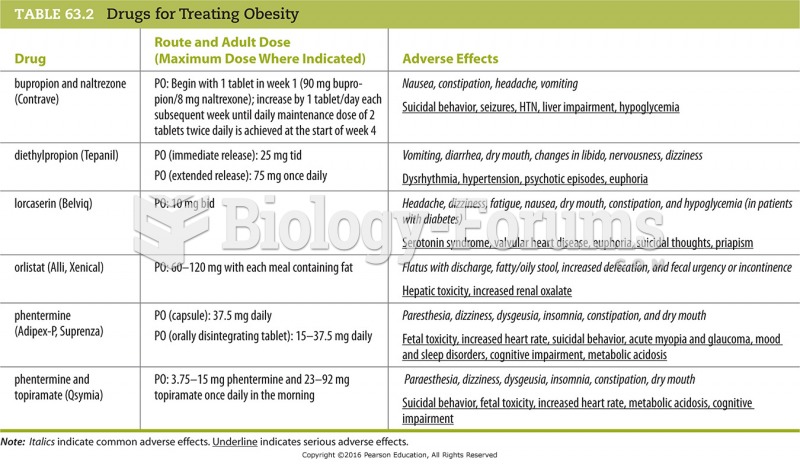Answer to Question 1
An important aspect of obesity is the prejudice to which obese people may be subjected. Children who are obese are more likely to suffer unfair or indifferent treatment from teachers and to experience more isolation, rejection, and feelings of inferiority than other children. Obese adults are likely to be discriminated against in hiring and promotion decisions and to be thought of as lazy or lacking in self-controleven by health professionals. Society's prejudice against people who don't conform to the cultural ideal of body size may be one of the most injurious aspects of being obese. It is also a preventable part of the reduced health and well-being experienced by many obese people. Acceptance of people of different sizes and a more realistic view of obtainable body weights and shapes may be two of the most important things society can do to ameliorate the harmful effects of obesity.
Answer to Question 2
An individual's genetic traits. Obesity tends to run in families due in part to shared types of genes that influence food intake by increasing the feelings of reward and pleasure associated with eating.
Geneenvironment interactions. Obesity is influenced by interactions between gene types and an environment that offers an abundant, inexpensive, and readily available supply of highly palatable foods. People who tend to overeat and gain weight in this environment appear to have an exaggerated reward response to eating energy-dense, sweet, or other appetizing foods.
High added sugar intake. High intake of sugar-sweetened beverages has been found to promote the development of obesity in genetically susceptible people.
Poverty and low educational levels. These two factors are strongly associated with the development of obesity. The increased risk of obesity appears to stem from the limited variety of types of food available in nearby stores, food cost, time constraints, low levels of physical activity, and lack of transportation and related factors.
Lack of sleep. Getting 45 hours of sleep per night versus 810 hours a night is related to increased food intake and weight.
Exposure to PCBs (polychlorinated biphenyls). PCBs are used as coolants and lubricants. Exposure to them during pregnancy and early childhood is related to metabolic changes that encourage the development of obesity in children. PCBs are no longer used, but they remain in the environment and can contaminate food supplies.
Smoking cessation. Smoking cessation is related to appetite and weight gain in most people who quit.
Medications. A number of commonly prescribed medicationssuch as insulin, metformin, beta-blockers, sleeping pills, and hormone therapiesare related to weight gain.
Physical inactivity. Reduced levels of energy expenditure for physical activity at work and at home are part of our obesity-promoting environment. This situation encourages weight gain.







